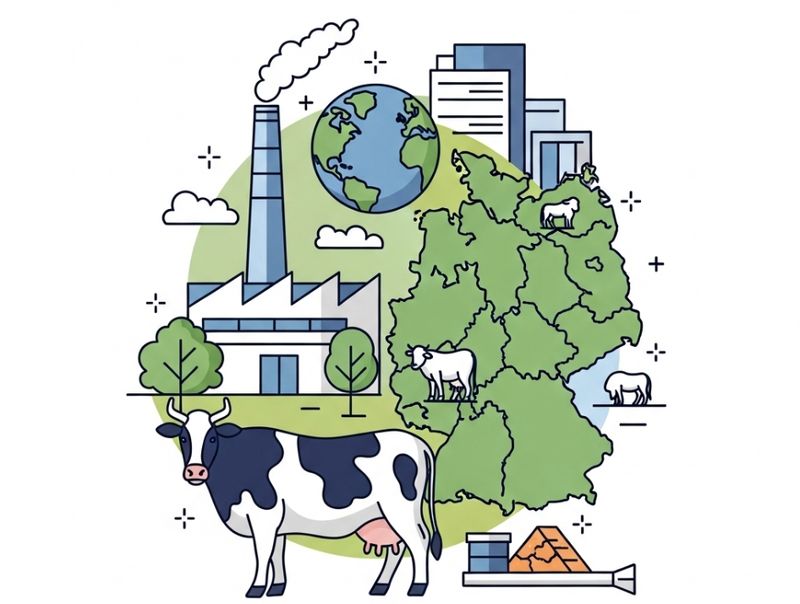
Published in News
Market Pulse: Hilton Foods' Growth, "End the Cage Age" Pressure, and German Sourcing Shifts
UK processor Hilton Foods shows strong growth, the EU faces legal action over its delayed cage-free farming legislation, and German retailers double down on domestic sourcing.

Bo Pedersen
Chief Revenue Officer
Corporate Strategy: Hilton Foods Reports Strong Growth
What happened: UK-based international food processor Hilton Food Group has reported that it is trading in line with expectations for 2025, with both sales and volumes ahead of the same period last year. The company noted strong performance in its core meat and ready-meal businesses in Europe and continued volume growth in the Asia-Pacific region.
Why it matters: Hilton's positive performance, particularly its international growth, demonstrates the resilience of a diversified business model that serves multiple retailers across different geographies. For a company that packs meat for many of Europe's largest supermarkets, including Tesco, Ahold Delhaize, and ICA, this strong trading is a positive signal for the health of the retail grocery sector.
Implications & suggested actions:
Processors & Suppliers: Hilton's success underscores the importance of strong retail partnerships. Their continued growth, especially in value-added and ready-meal categories, highlights key areas of consumer demand.
Investors: The company's stable performance and positive outlook, backed by a strong dividend yield, make it an important bellwether for the financial health of the wider food processing industry.
Wholesalers: Note the strong performance in ready-meals and convenience. This is a clear indicator of a consumer trend that can be leveraged in the wholesale and food service channels.
EU Regulation: Commission Faces Legal Action Over “End the Cage Age” Delay
What happened: The citizens' committee behind the successful “End the Cage Age” European Citizens' Initiative (ECI) is taking the European Commission to the European Court of Justice. The legal action is in response to the Commission's failure to deliver a legislative proposal to phase out cages for farmed animals by the end of 2023, a commitment it made in 2021 after the ECI was signed by 1.4 million citizens.
Why it matters: This legal challenge puts the spotlight firmly back on one of the EU’s most significant pending animal welfare reforms. The promised legislation would affect hundreds of millions of hens, pigs, calves, rabbits, and other animals. The delay has created significant uncertainty for farmers and processors, and this court case will increase the political pressure on the Commission to finally table its proposals.
Implications & suggested actions:
Farmers: The transition to cage-free systems is a matter of "when," not "if." Use this period of delay to research and plan for the necessary investments in alternative housing systems. Engage with farming unions who are lobbying for significant financial support to manage this transition.
Processors: The uncertainty over the timeline is challenging. However, the direction of travel is clear. Begin conversations with your suppliers about their transition plans and assess any potential long-term impacts on supply volumes and costs.
Retailers & Food Service: Many major food companies have already made voluntary cage-free commitments for 2025. This legal action will intensify public and media scrutiny. Be prepared to communicate transparently about your own progress and ensure your supply chain is robust enough to meet your pledges.
Market Trends: German Retailers Prioritise Domestic Sourcing
What happened: A clear trend is solidifying in the German market, with major retailers increasingly promoting and prioritising domestically-sourced meat. This "Heimat" (homeland) trend is driven by consumer demand for greater transparency, shorter supply chains, and higher animal welfare standards. Retailers are using prominent "Made in Germany" labelling and investing in supply chain partnerships to guarantee German origin from farm to fork.
Why it matters: This is a significant shift in Europe's largest consumer market. It presents a major challenge for exporters from other EU countries, such as the Netherlands, Poland, and Spain, who have historically been major suppliers to the German market. For German producers, it offers a competitive advantage and the opportunity to secure long-term contracts based on provenance.
Implications & suggested actions:
German Farmers & Processors: This trend provides a strong domestic market. Double down on quality assurance and traceability systems to meet the demands of your retail partners. Use this as an opportunity to secure premium pricing for demonstrably German products.
EU Exporters to Germany: Your access to the German market is facing a significant non-tariff barrier. Focus on products that Germany cannot produce at scale or on building partnerships with German processors. Simply competing on price will become increasingly difficult.
Wholesalers: Be aware of this strong retailer and consumer preference. When sourcing for the German market, prioritise products with clear German origin, as this is becoming a key purchasing criterion for your customers.
Sources
Hilton Food backs 2025 outlook as sales rise, partnerships take shape - Morningstar (20 May 2025)
Hilton Food Group PLC (HFG.L): A Look At Its Resilience Amidst Market Challenges - DirectorsTalk Interviews (19 August 2025)
EU has failed to ban cages as promised in 2021 - Animal Equality UK (25 March 2025)
End The Cage Age: We demand compliance with the European Commission's Farm to Fork Strategy - Animal Welfare Observatory (28 March 2025)
Germany Meat Market Size, Share, Trends and Forecast - IMARC Group (19 July 2025)
Germany Food Industry Trends 2025: Key Insights & Market Shifts - Accio (26 May 2025)
